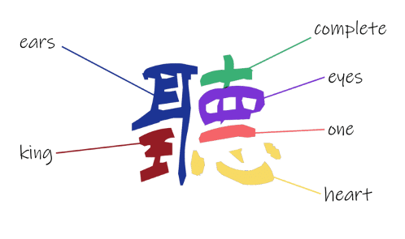.png)
The Year of Deep Listening | March 2022
This year, let us listen not just with our ears, but with our hearts, and with all of our senses.

My former boss was attending a conference here in Singapore, so we took the opportunity to meet up. After we had all shared our updates and everyone else was talking, he turned to me and said, “How are you, Sha-En?” I proceeded to answer, and he stopped me mid-sentence, repeated, “Not more updates, like really, how ARE you?” It was gentle, assuring, and genuine.
As I shared about how things were really going, he listened. It wasn’t just perfunctory listening, and he didn’t chase me to keep it short, nor did he interrupt unnecessarily. He leaned in, took a genuine interest in what I was saying, and occasionally asked questions to clarify. After our conversation, I felt refreshed.
I go back to this moment quite frequently because his listening made me feel valued and supported. It was like a beautiful dance I did not want to end. And in that brief moment, he understood what mattered to me.
In the past 2 years, people have been grappling with the uncertainty and changeability of the pandemic. When we meet someone, we may not always know what they might be struggling with. At the workplace, particularly, with targets looming and to-do lists seemingly never- ending, some might put up a brave front just to get through the day.
This is where deep listening, especially as a leader, can truly be powerful.

Here is an example of what it can look like in a conversation:
Leader: What’s going on, Sarah?
Sarah: Sigh! I worked so hard all this week to finish this project but because of the new covid restrictions, things are delayed again! (shoulders slumped, head looking downward)
Leader: (Putting aside the phone and turning to face Sarah) Sounds like you are really frustrated.
Sarah: Yes, everything keeps changing all the time, and it makes it really hard to get things moving!
Leader: Sorry to hear that. I can see that you’ve been working later to try to get everything done this week. It must be challenging having to work through all these changes! What exactly is getting in the way?
Sarah: The supplier said that the items would be in by last week, so I’ve been arranging for all the deliveries to be ready by then. However, things got delayed again, so now the delivery people say they cannot do it for us anymore. (sighs and scratches head)
Leader: So you’re saying that things feel out of your control and it feels like your hard work has gone to waste?
Sarah: YES! That is exactly how I feel! I just wish things would go smoothly for once! (slumps down in the chair)
Leader: (nods) Yes, I get it! In our line, so much depends on one factor influencing the other. And especially frustrating when we finally get things to align, only to be messed up again. Is there anything I can do to help?
Sarah: (looks up and smiles) I’m not sure, but I am glad you understand. Let’s hope that things get better soon.
In the conversation above, you’ll see that the leader utilised the following tips:
- Put aside all distractions. External distractions like notifications, or people stopping by to ask you questions; or internal distractions like listening to reply, rebut or judgements can prevent you from being truly present.
- Focus on the speaker. Treat the person who is sharing with you as the most important person in the room. Approach the conversation with curiosity and interest in what the speaker is saying, asking questions to clarify or find out more information.
- Listen beyond the words. Looking at the traditional Chinese word for “listen” below, you’ll see that listening is not just about focusing on the content of what is being said. It is also about using multiple senses to get a whole understanding of what the speaker is saying.


In the traditional Chinese character (“Ting”) above, listening is not just about using our ears to hear. You put the person in the seat of a “king”, the most important person in the room, and listen with undivided attention, by using your eyes to observe, maintaining eye contact; and your heart to listen for how they are feeling. This is what deep listening is all about.

In practicing the above, Sarah left feeling understood and heard. Although the problem was not necessarily solved, it was a meaningful connection powered by the leader practicing deep listening.
Thus, the next time someone trusts us enough to share what they are experiencing, unleash your listening superpower! Be present in the conversation and give them your undivided attention. You may be surprised at how this simple act can support them, help them feel appreciated and give them much needed motivation.
Sha-En Yeo, MAPP

About the Author
Sha-En is a TEDx Speaker, and over the past 10 years, has trained more than 20,000 people in the tools & research of Positive Psychology. She has been featured on the documentary ‘Chasing Happiness’, Business Times, MyExecutive newspaper and radio 938NOW & MONEY FM.

About ECF
The EtonHouse Community Fund (ECF) was founded on the EtonHouse Group's strong belief in the importance of education and the spirit of giving back to society. We are an IPC Charity committed to improving the lives of less privileged children and youth through a range of programmes to enhance emotional well-being, cognitive development and fitness. In 2019, we received the Community Cares Award from the Ministry of Social and Family Development (MSF).
Visit our website for more information: www.ehcommunityfund.org.sg
